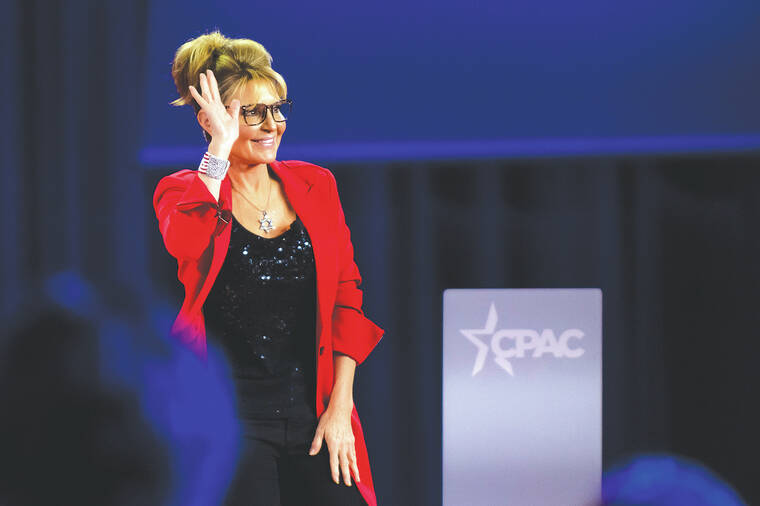Sarah Palin is granted new libel trial against The New York Times
A federal appeals court Wednesday ordered a new trial in a closely watched libel lawsuit that Sarah Palin, former governor of Alaska and Republican vice presidential nominee, brought against The New York Times.
The court found that Palin’s original trial against the Times, which she lost in 2022, had been tainted by problematic rulings by the presiding judge.
ADVERTISING
The suit, which Palin first filed in 2017, accused the Times of defaming her in an editorial that wrongly suggested she had incited a 2011 shooting at a political event in Arizona. Palin said the editorial had damaged her reputation, even though the Times had swiftly corrected and apologized for the piece.
A federal jury in New York City ruled for the Times. Palin appealed, arguing in part that the judge hearing the case had wrongly excluded evidence. She also argued that the jury may have been swayed by announcing that he planned to throw out the lawsuit even as the jury was continuing to deliberate.
The three-judge appeals panel in New York sided with Palin, saying the trial judge, Jed Rakoff, had made a number of errors that “impugn the reliability” of the verdict. The appeals court called for a new trial.
“Gov. Palin is very happy with today’s decision, which is a significant step forward in the process of holding publishers accountable for content that misleads readers and the public in general,” said Shane Vogt, Palin’s lawyer.
“This decision is disappointing,” Charlie Stadtlander, a spokesperson for the Times, said. “We’re confident we will prevail in a retrial.”
The case was freighted with significance because Palin’s lawyers hoped to use it as a vehicle to overturn the Supreme Court’s landmark First Amendment decision in New York Times v. Sullivan. That 1964 ruling, as well as a handful of subsequent cases, has made it much harder for public figures to win libel lawsuits.
The appeals court’s 56-page ruling Wednesday did not engage with the argument by Palin’s side that the Sullivan precedent was obsolete. Instead, the three judges — all appointed by Republican presidents — faulted Rakoff’s handling of the trial.
Among other things, the appeals panel said Rakoff had improperly prevented jurors from hearing evidence that might have shown that James Bennet, who at the time oversaw the Times’ editorial board and edited the piece in question, knew or should have known that Palin did not incite the 2011 shooting in Tucson, Arizona.
This article originally appeared in The New York Times.
© 2024 The New York Times Company


